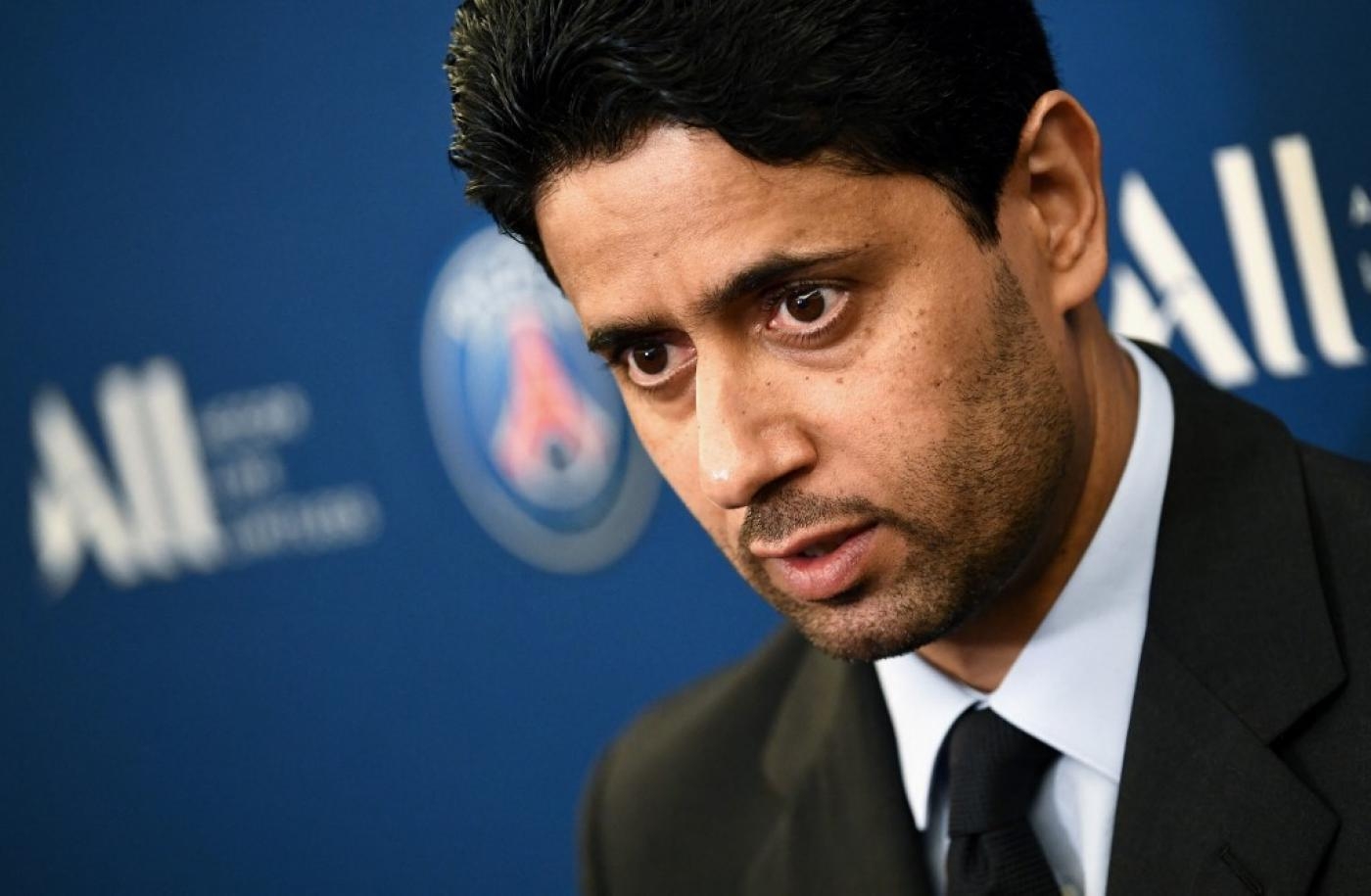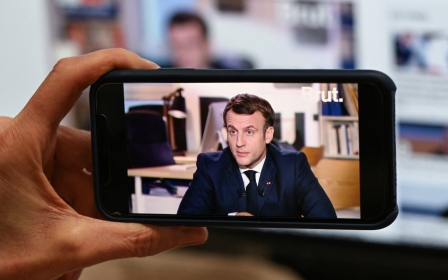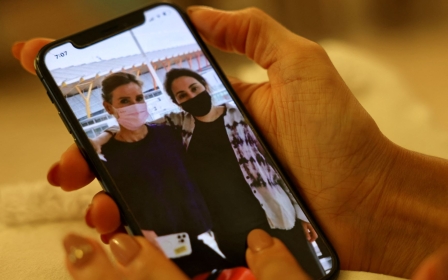Pegasus: Qatari boss of Paris Saint-Germain and beIN Sports on NSO list

Two mobile phone numbers belonging to Nasser al-Khelaifi, the Qatari president of the French football club Paris Saint-Germain and chairman of Qatar's beIN Sports, were on the list of numbers potentially targeted with Pegasus spyware, according to Le Monde.
The French newspaper, one of 17 media organisations who helped examine the alleged spying abuses, said that the potential hacking of Khelaifi’s phones took place in 2018, during the Gulf dispute that saw Saudi Arabia, the UAE, Bahrain and Egypt sever diplomatic, trade and travel ties with Qatar in 2017, over claims that Doha supported terrorism, a charge the country has long denied.
Khelaifi was at the centre of a row between Doha and Riyadh over pirate channel beoutQ, which stole the signals of beIN to broadcast elite football competitions and tournaments.
Le Monde said the same client who used Pegasus to potentially hack the phones of the management of the beIN Media Group also targeted senior Turkish, Emirati and Lebanese officials, and several voices critical of Saudi Arabia’s monarchy, indicating that Saudi intelligence were behind the hacking.
The newspaper stressed it did not have access to Khelaifi's phones and therefore could not verify if he was indeed spied upon.
The results of the Pegasus investigation, led by the Paris-based non-profit journalism group Forbidden Stories, were first published on Sunday. The investigation said the spyware, made and licensed by Israel's NSO Group, had been used in attempted and successful hacks of smartphones belonging to journalists, state officials, human rights activists and government leaders on a global scale.
A Saudi official denied claims that the country used spyware to track communications, the kingdom's state TV reported on Wednesday.
NSO also issued a statement on Sunday rejecting the investigation's findings, saying it was "full of wrong assumptions and uncorroborated theories".
Middle East Eye delivers independent and unrivalled coverage and analysis of the Middle East, North Africa and beyond. To learn more about republishing this content and the associated fees, please fill out this form. More about MEE can be found here.





